Introducing Zilliz MCP Server: Natural Language Access to Your Vector Database
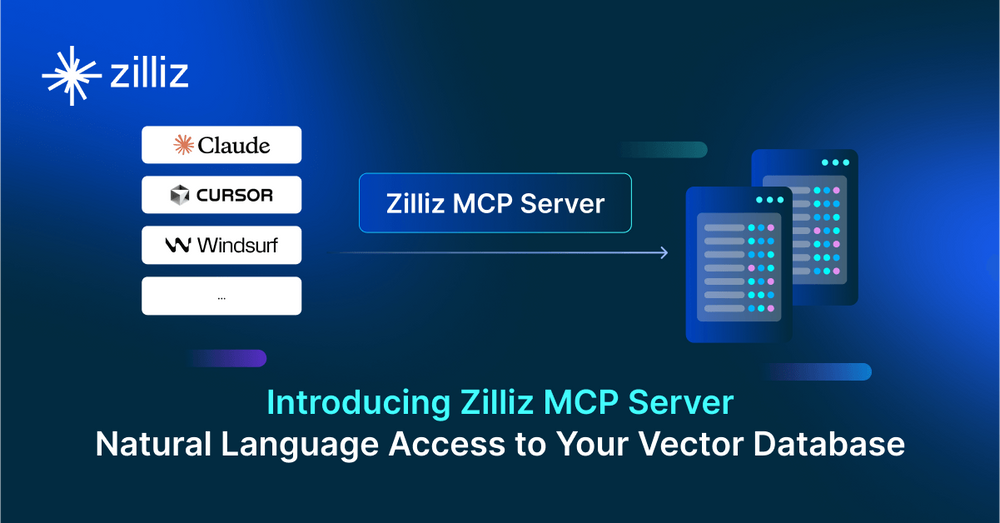
AI agents are quickly becoming a core part of how developers build and interact with applications. As this shift takes hold, the Model Context Protocol (MCP), originally proposed by Anthropic, is emerging as the leading open standard for connecting agents with the tools and data they need. MCP makes it possible for agents to access real-time, relevant context across systems, enabling more useful and responsive behavior.
Today, we're launching the public preview of the Zilliz MCP Server, a bridge between AI assistants and your Zilliz Cloud and Milvus vector databases. Built to support the open Model Context Protocol (MCP), Zilliz MCP Server allows developers to perform database operations using natural language, directly inside AI-native environments like Claude, Cursor, and Windsurf.
Now, you can simply say:
"Create a collection for storing image embeddings with 512 dimensions."
Or
"Show me my cluster’s performance metrics."
And the MCP server handles the rest—translating your request, managing connections and auth, and returning results in a format your AI assistant understands.
The Zilliz MCP Server: Connecting to Broader Agentic AI Ecosystem
The Zilliz MCP Server bridges AI assistants and Zilliz Cloud, enabling you to manage infrastructure and perform data operations through natural language. With this server, you can now handle complex database tasks conversationally—no switching between interfaces, tools, or writing manual queries.
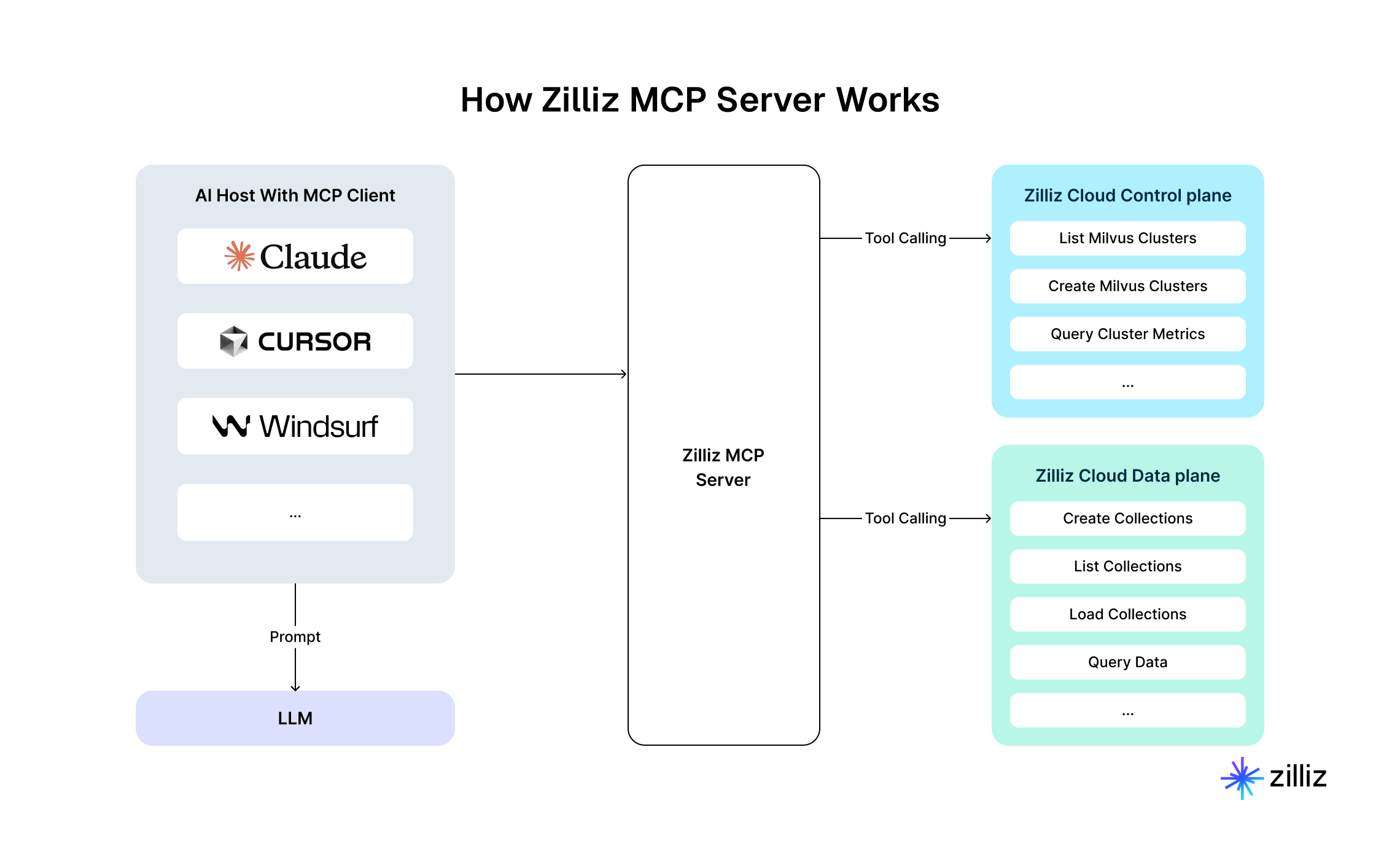 How Zilliz MCP Server Works
How Zilliz MCP Server Works
When you make a natural language request, the MCP server leverages LLMs to translate it into appropriate database operations, handles authentication and connection management, and returns results in a format your AI assistant can understand and present.
The Zilliz MCP Server enables:
Natural language data operations, allowing you to use plain language—English, Chinese, Spanish, you name it—to interact with your data: "find documents similar to this product description" or "create a collection for storing image embeddings with 512 dimensions."
Effortless database management—ask your AI to "create a free vector database cluster" or "show me my cluster's performance metrics" and watch as complex infrastructure tasks happen automatically.
Context-aware code generation, where you can describe your use case and let your AI assistant analyze your existing collections and generate complete applications tailored to your specific schema and requirements.
Building with Zilliz MCP Server via Natural Language
The Zilliz MCP Server offers comprehensive capabilities that span both control plane operations (cluster management, monitoring, and resource optimization) and data plane operations (collection creation, vector search, data insertion, and hybrid queries). This broad functionality enables diverse use cases across different developer roles and project types.
Here are three core use cases that showcase the transformative potential:
Manage Your Database Using Natural Language
Managing vector databases typically means context switching between multiple tools and interfaces. You create clusters in one place, check their status in another, and perform searches through yet another interface. For developers using AI-powered coding tools like Cursor, Claude, or Windsurf, this constant switching breaks your development flow and slows down productivity.
The Zilliz MCP Server eliminates this friction by bringing all database operations into your conversational workflow.
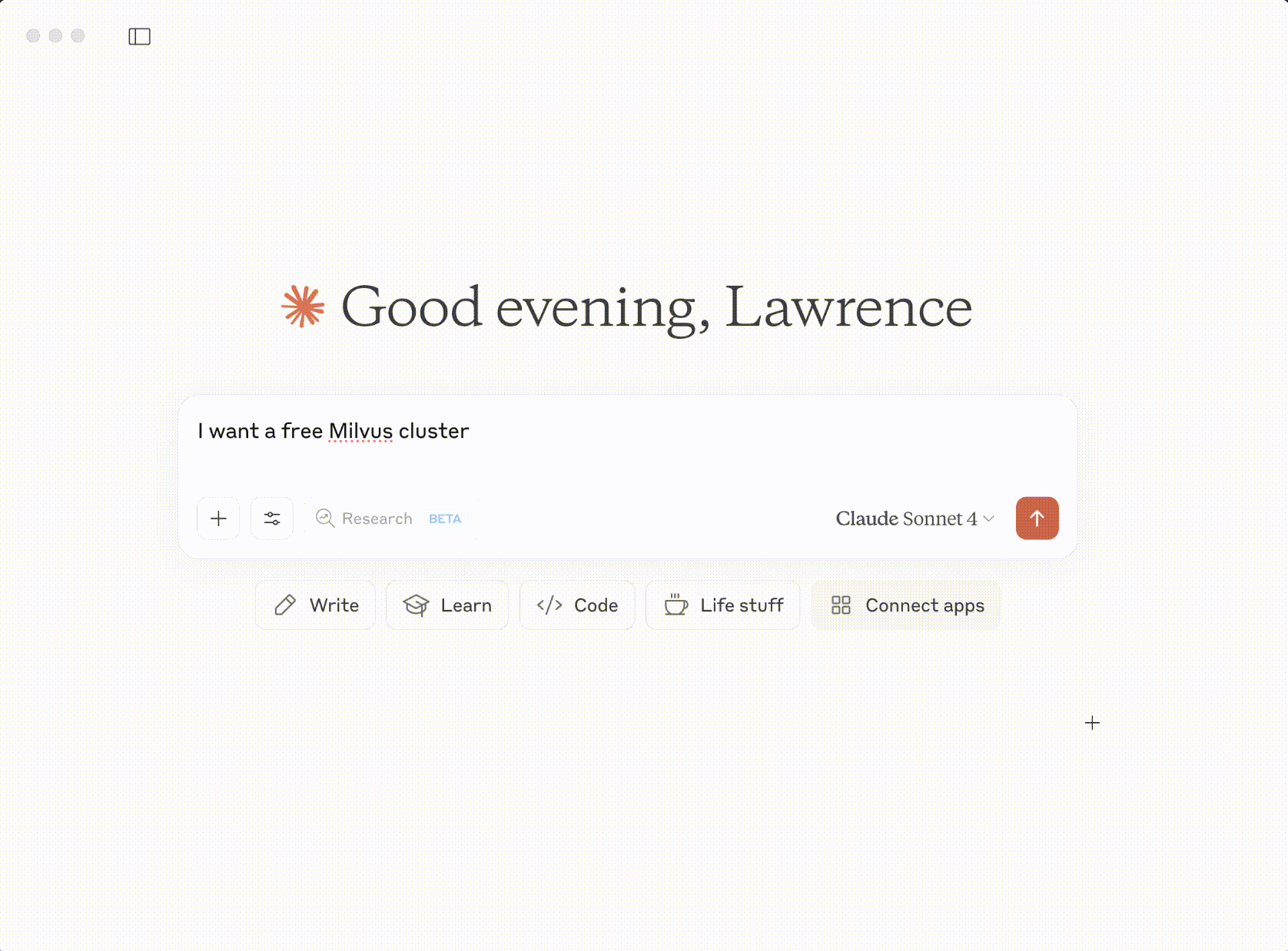 create_free_milvus
create_free_milvus
Simply say "create a free vector database cluster" and get a fully functional Milvus cluster with automatic authentication and configuration. No need to leave your AI chat interface or manually set up infrastructure.
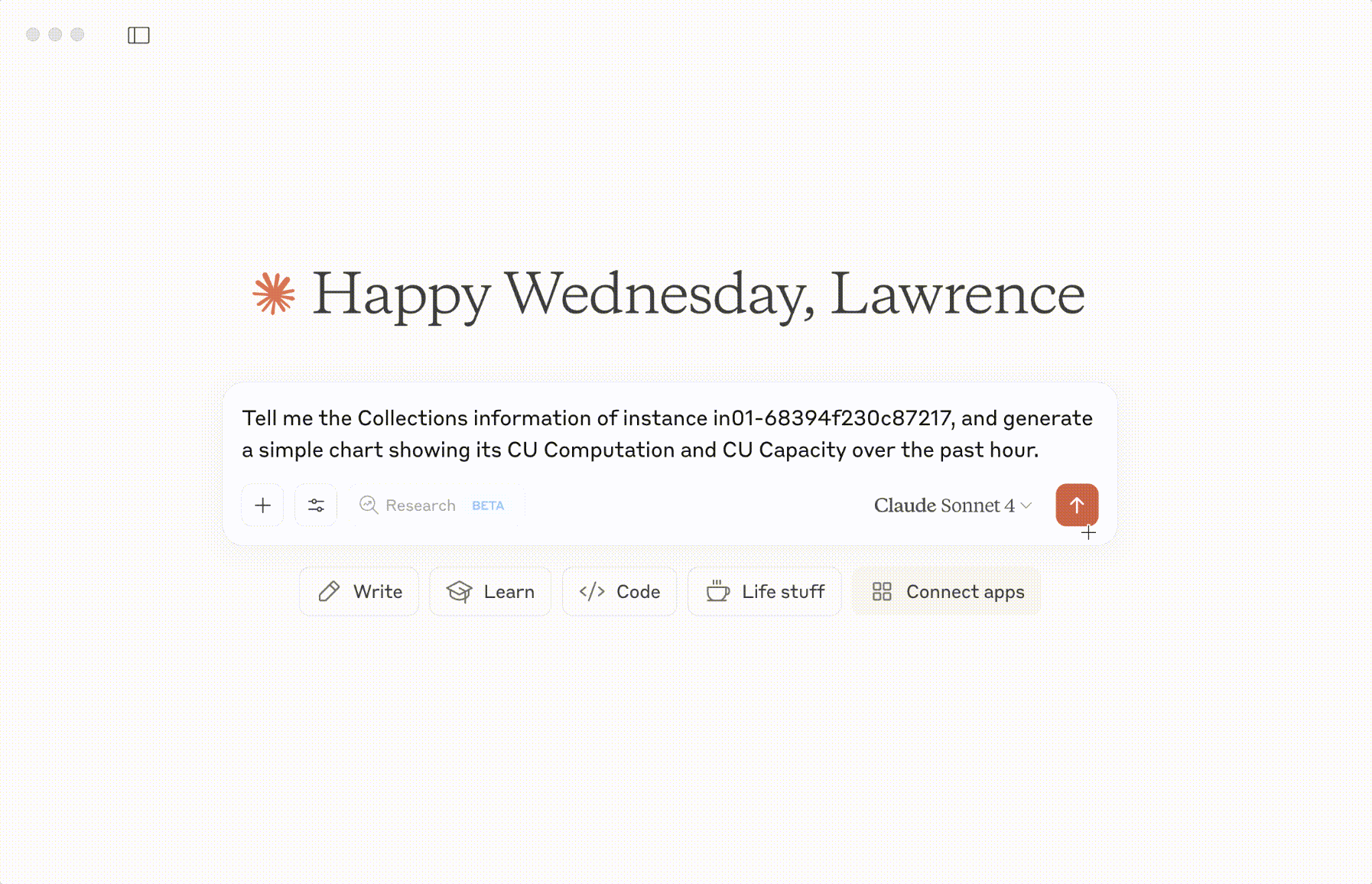 check_out_the_cluster
check_out_the_cluster
Need to check how your database is performing? Simply ask "show me my cluster's performance metrics" and get real-time visualizations without accessing separate monitoring dashboards.
Explore Your Data Like a Data Engineer
Vector databases have been primarily accessible to machine learning engineers and data scientists who understand embeddings, similarity metrics, and complex query languages. The Zilliz MCP Server democratizes this technology by making data exploration as simple as asking questions.
Product managers can analyze user behavior patterns, designers can explore content similarities, and frontend developers can test search functionality—all without specialized database skills. You don't need to become a vector database expert to leverage vector database capabilities.
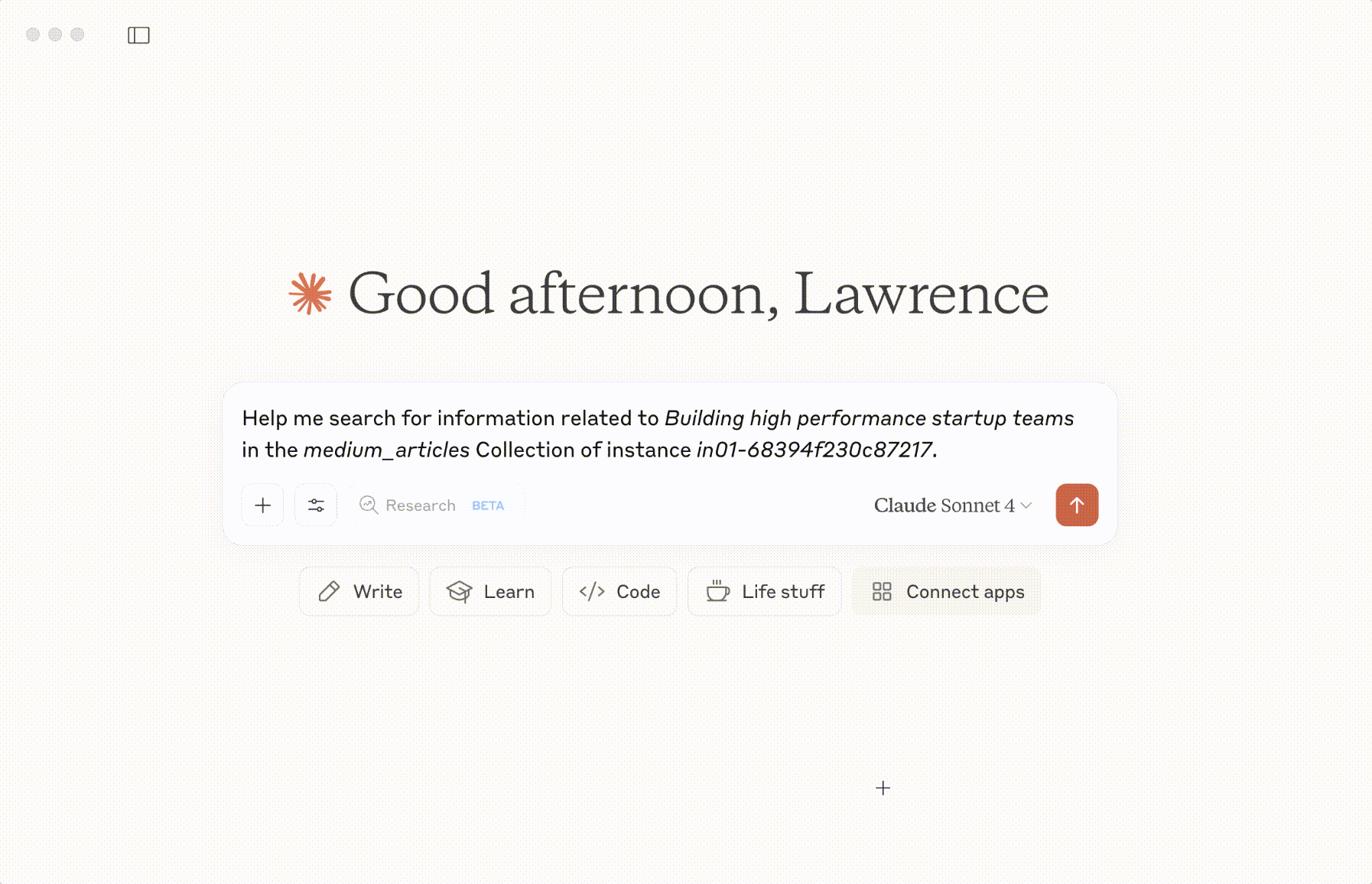 search
search
Simply describe what you're looking for: "find documents similar to this product description" and get relevant results through a conversational interface.
Build with Context-Aware Code Generation
Generic code templates often don't match your specific data structures. The Zilliz MCP Server enhances your AI assistant's capabilities by providing direct access to your actual database schema and data patterns.
When your AI assistant can read your existing database structure and collection schemas, it generates applications that perfectly match your specific use case. This results in more accurate, production-ready code with significantly less development time.
Making Vector Databases Accessible in an Agentic AI World
As more agentic AI applications transition from prototyping to production, they require robust infrastructure with semantic search capabilities. But vector databases have traditionally been complex, requiring specialized knowledge that creates barriers for most developers.
Zilliz Cloud, our fully managed vector database built on Milvus, is highly performant yet already completely hassle-free, eliminating deployment complexities and operational overhead. The Zilliz MCP Server takes this simplicity one step further, enabling vector operations through natural language conversation.
The future of development is collaborative—AI assistants handle routine complexity while developers focus on creative problem-solving. By integrating directly with agentic AI workflows through MCP, we're meeting developers where they already work, removing the traditional barriers between conversation and database operations.
As the MCP ecosystem expands, we'll continue to enhance our implementation based on developer feedback. Every developer should be able to build AI-powered features without becoming a specialist in vector databases, focusing on innovation rather than infrastructure management.
Try the Zilliz MCP Server Today
Getting started with the Zilliz MCP Server is straightforward: sign up for a free Zilliz Cloud account (or sign in here if you already have one), install the MCP server, and configure your AI assistant. Once set up, you can immediately start creating collections, inserting vector data, and building semantic search capabilities through natural language conversations.
Check out Zilliz MCP Server on GitHub and see how it can transform your vector database workflow, along with step-by-step instructions on its use.
The future of agentic AI and vector database development is conversational, and it's available today.
- The Zilliz MCP Server: Connecting to Broader Agentic AI Ecosystem
- Building with Zilliz MCP Server via Natural Language
- Making Vector Databases Accessible in an Agentic AI World
- Try the Zilliz MCP Server Today
Content
Start Free, Scale Easily
Try the fully-managed vector database built for your GenAI applications.
Try Zilliz Cloud for FreeKeep Reading
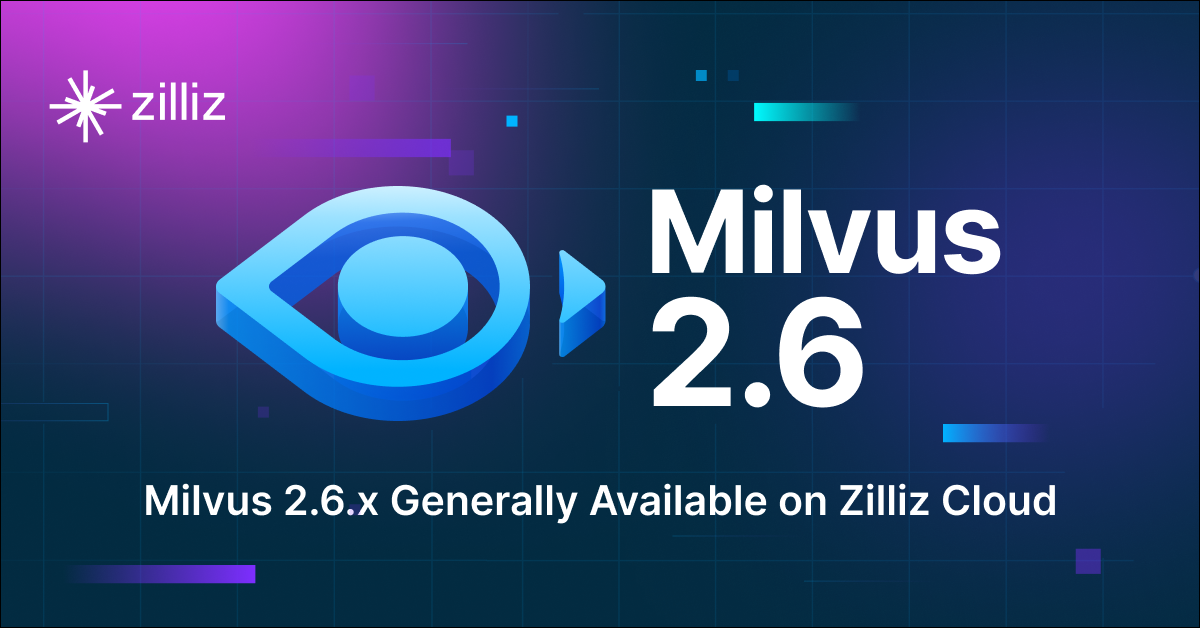
Milvus 2.6.x Now Generally Available on Zilliz Cloud, Making Vector Search Faster, Smarter, and More Cost-Efficient for Production AI
Milvus 2.6.x is now GA on Zilliz Cloud, delivering faster vector search, smarter hybrid queries, and lower costs for production RAG and AI applications.
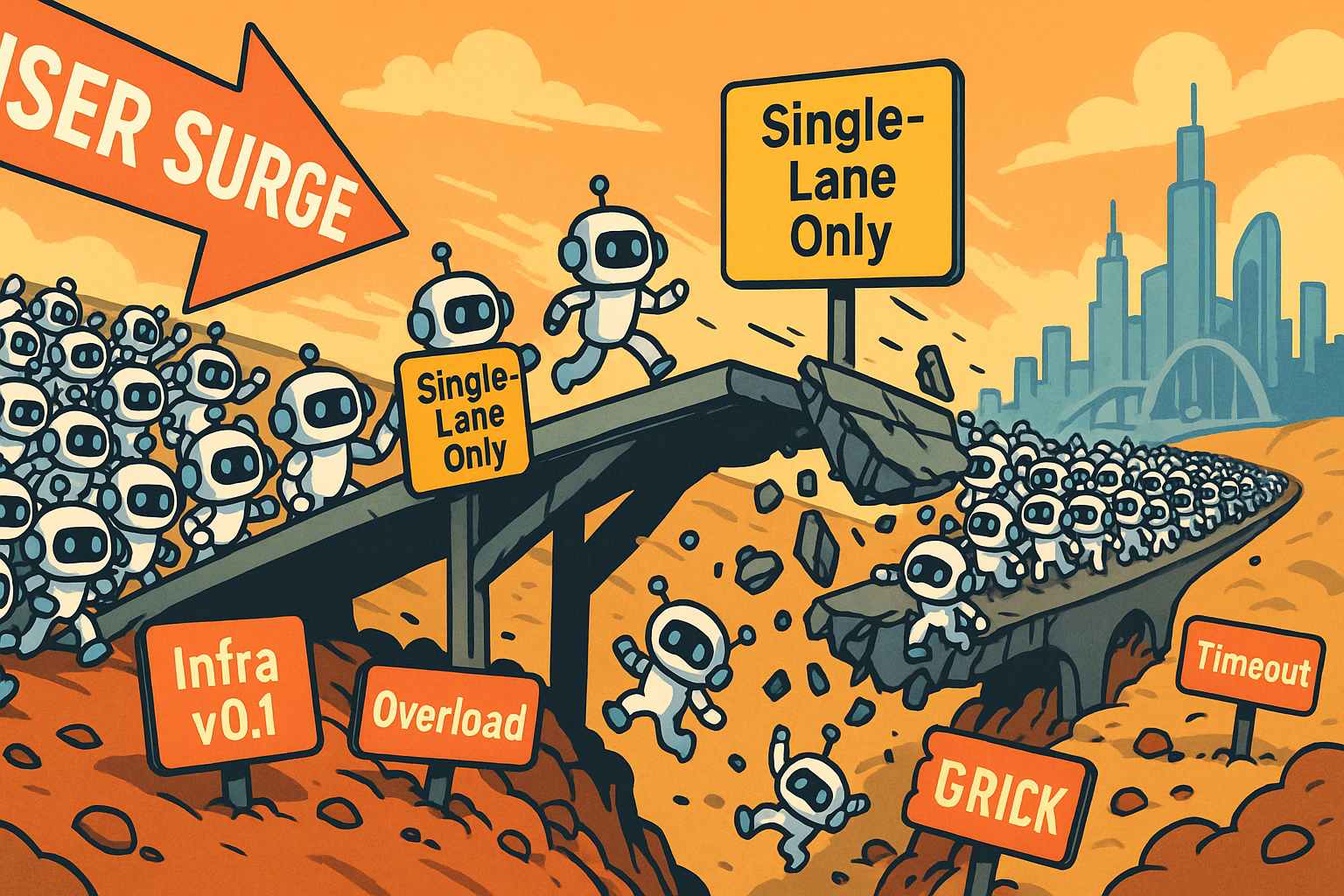
Build for the Boom: Why AI Agent Startups Should Build Scalable Infrastructure Early
Explore strategies for developing AI agents that can handle rapid growth. Don't let inadequate systems undermine your success during critical breakthrough moments.
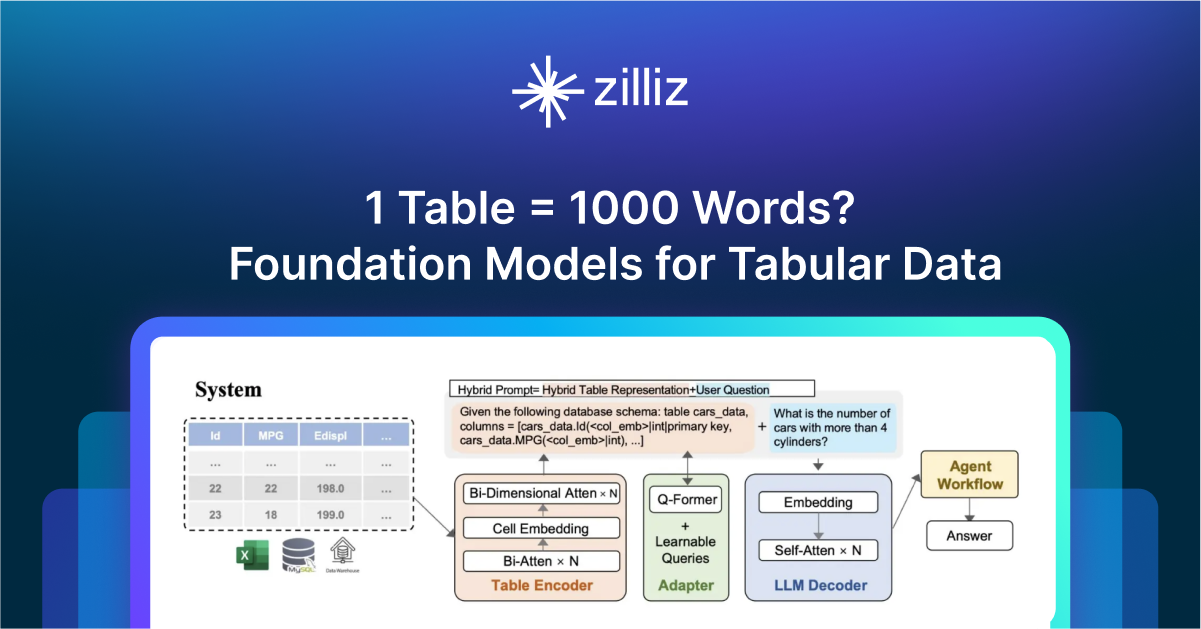
1 Table = 1000 Words? Foundation Models for Tabular Data
TableGPT2 automates tabular data insights, overcoming schema variability, while Milvus accelerates vector search for efficient, scalable decision-making.
